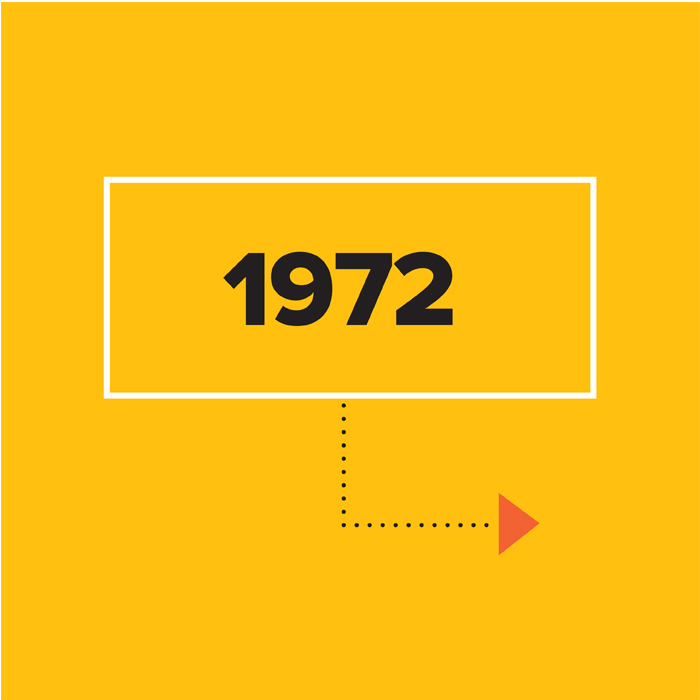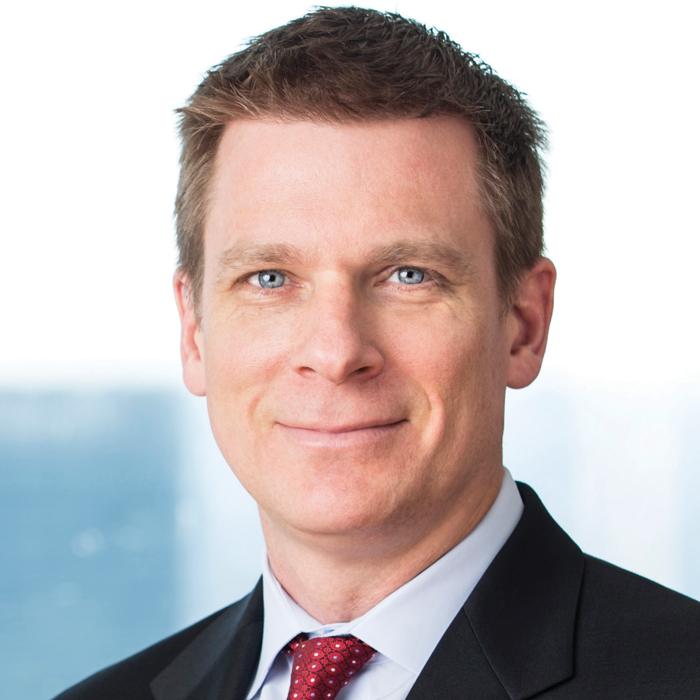
Born in Prince George’s County, Maryland
Tom is the oldest of five children.

TU has sparked countless innovators. These are their stories.

A reporter by training, Tom Johnson’s path to becoming CEO of Abernathy MacGregor was highly unconventional. It weaved through newsrooms at TU, in Frederick and Baltimore and ultimately in New York City, where he contributed to Reuters’ coverage of 9/11. Today he runs a strategic communications firm with 85 employees in five offices around the country. “For me, entrepreneurship, collaboration and leading by example best define what I do,” he says. “I was a mass communication major—I don’t proclaim to be the world’s best businessperson. You’ve got to have an open communication style where you allow people to bring forward good ideas and concerns, because if we’re going to grow, we’re going to do it collectively.”
This essay, written by Johnson, appeared in the Winter 2002 issue of “TU Magazine.”
The first question, after the obligatory inquiries about my safety, is always: “What was it like?”
To be honest, I’m still not sure.
September 11 has been described by wordsmiths far more gifted and eloquent than I. To me, it still just seems surreal. One of my most distinct memories that day is turning to a colleague and asking if he too expected to wake up and end this horrible dream.
Yet, two hours later, I was still very much awake, taking a silent ferry ride home and shuddering at the gigantic hole that had been ripped into the skyline I had come to love.
I am not a native New Yorker. I was born and raised in Maryland and to this day, still refer to it as my home. But I have come to love this town for its energy, its resolve and its pride. Certainly, those attributes have become highly publicized since the unfathomable attacks of September 11. But from the moment I arrived nearly three years ago, they were manifest in nearly everyone I met, from the “Titans of Finance” on Wall Street to the immigrant working a coffee cart outside Penn Station.
One of my favorite things to do here is to take an early morning run before the city begins to stir. I live in Hoboken, N.J., right across the Hudson River from New York’s daunting line of seemingly unshakeable pillars of glass, steel and concrete. Running along the water’s edge, the looming skyline routinely teases me with a sense of confidence that sometimes eludes me during the day. In the early morning haze—sans the frenzied pace that typically consumes New York—the skyline cedes a fraction of its limitless power, giving me some mystical sense that I actually could make it in this town.
I went running that morning and even at 6 a.m., it was already a beautiful late summer day. I distinctly remember glancing toward the Twin Towers, standing there, beckoning me to take my best shot.
I work for the “Reuters” news agency, the world’s largest wire service, where I oversee the North American mergers and acquisitions desk from one of the many new skyscrapers that have infiltrated Times Square. I help cover multi-billion dollar mergers and the high rollers of corporate finance who make them happen.
The thing I love about being a reporter is the job’s unpredictable nature. There is an almost hypnotic rhythm that flows through any newsroom each day. For one like ours that covers Wall Street, that rhythm tends to accelerate shortly before the market opens and closes every day, when the day’s biggest stories will typically unfold. But for a journalist, few things compare to the adrenaline rush accompanying an unexpected big story.
That rule did not apply to September 11. There was an adrenaline rush, yes, one beyond any I’ve known in my short, professional career. But it was a troubling, almost haunting rush, primarily because the story kept unfolding, and getting more horrible, as the day progressed. There was never a moment to catch my breath or collect my thoughts or make sense of it all. Everything I did that day was on the fly, reacting from one moment to the next. One second, I was on the phone trying to track down someone who could help with a story. The next I was holding my breath trying to call my wife or a close friend who worked or traveled downtown.
The next day, still shaken, I took a nearly empty ferry into the city and felt almost embarrassed for staring endlessly at the cloud of gray smoke blanketing downtown. I remember trying hard to visualize exactly where the twin towers stood, worried that I would too soon forget, much like you worry about forgetting what a loved one looks like as time drifts by.
Walking to work that day, I realized that the “City that Never Sleeps” had decided it was better to hit snooze and shutter itself indoors for perhaps the first time in more than a century. Even on the roads that weren’t blocked, stores stood dark behind their iron gates. Main avenues, typically packed with overheated cars and drivers, were empty and silent. The few pedestrians I did find stood mesmerized by Times Square news tickers, looking as if they too were waiting to wake up from the horrible dream.
I, and millions of others in New York City, spent September 12 and the days that followed, trying to track down everyone we knew. For me, that meant finding the “Titans of Finance” I covered on a regular basis. With every phone call, there came a new sense of dread. There was no way to know what awaited me on the other end. Mostly I just prayed that a familiar voice would pick up and say “hello.” But even then, there was little room for joy. What do you say to someone who lost a friend, family member or colleague? How do you respond to someone who haltingly recounts how they watched people fall from unimaginable heights and land around them? Not only were there no easy answers, there were no answers at all most of the time. For maybe the first time in my professional career, I wasn’t necessarily there to do my job. I was there to listen and take part in the city’s massive and ongoing healing process.
So what was it like? I still don’t know. But I’ll tell you what I think I’ll remember most. About three weeks after the attacks, a colleague I had not seen in maybe six months visited the office. He’s a part-time firefighter who last spring took some time off to train for his lieutenant’s license. His company was one of the first to enter the World Trade Center buildings on September 11. Most did not come out.
My colleague was off that morning and arrived at the scene much later than the rest of his company. Engulfed in the rubble were so many just like him, and you could almost see the guilt seeping from his pores, even three weeks later. As I stood there talking to him, the tears in his eyes were so large and pervasive, you would have thought the tragedy had just happened. He couldn’t seem to raise his voice above a whisper and his head hung so low; it seemed almost impossible for him to hold it up. At the time, he was spending 14 hours a day digging in an area of the rubble where they thought his company might be buried. The other 10 hours were spent trying to console the wives and children of men who long ago became part of his family. The look in his eyes that day is one that I will never forget. I hope we as a country never forget either.
This town will never be the same. But neither has it cowered. As I write, my colleague is still at Ground Zero every day, 14 hours a day, digging for some kind of closure. I can only hope we all show the same resolve in rebuilding this country.